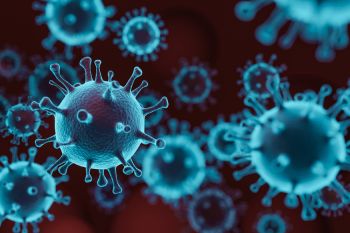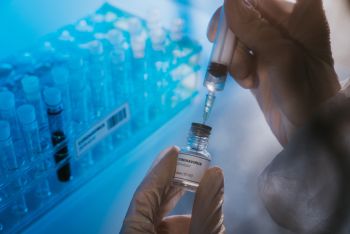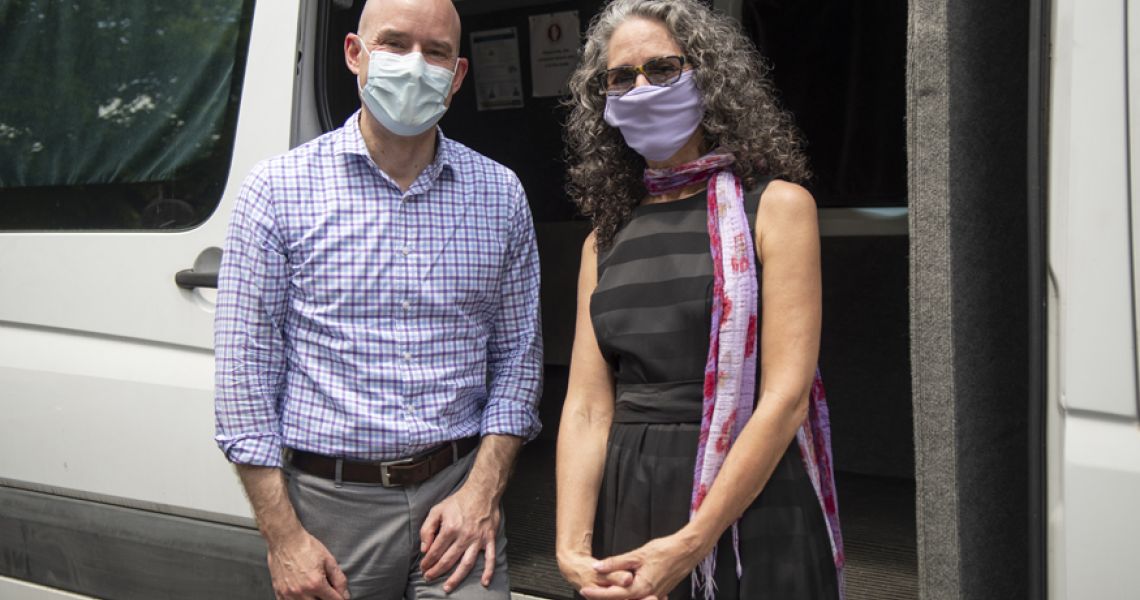
The university is one of approximately 90 sites in the United States selected to participate in clinical trials.
The George Washington University (GW) will participate in a Phase III clinical trial for an investigational COVID-19 vaccine. GW is one of about 90 sites in the United States selected to participate in clinical trials of experimental vaccines and monoclonal antibodies, laboratory-produced molecules engineered to serve as substitute antibodies.
This research ispart of the COVID-19 Prevention Network, established by the National Institute of Allergy and Infectious Diseases (NIAID) of the National Institutes of Health (NIH). Scientists hope the trials will result in new tools to prevent COVID-19, the disease caused by the novel coronavirus that has killed more than 600,000 people worldwide, including more than 150,000 Americans.
GW will participate as a trial site in a Phase III clinical trial of the mRNA-1273 vaccine, co-developed by NIAID scientists and the biotechnology company Moderna, Inc. The vaccine uses the chemical messenger ribonucleic acid, or RNA, that instructs the body’s cells to create a protein that mimics one found on the outer surface of the virus that causes COVID-19. The hope is that the injections will spur the body to mount an immune response to protect against the novel coronavirus. The trial is the latest advance in a series of steps to test the vaccine’s safety and efficacy in humans.
Leading the effort at GW is David Diemert, MD, professor of medicine at the GW School of Medicine and Health Sciences (SMHS) and a physician in the Division of Infectious Diseases at GW Medical Faculty Associates (MFA).
“COVID-19 is one of the greatest public health challenges of our time, and it is of utmost importance to find a safe and effective vaccine,” said Diemert, the principal investigator of the clinical trial at GW. “We are proud to play a role in the network of researchers working to reduce the impact of this deadly disease.”
The GW researchers plan to enroll 500 participants in the clinical trial out of 30,000 volunteers nationwide. The participants must be at least 18 years old, and at least a quarter will be 65 or older, or have at least one comorbidity such as heart disease, severe obesity, or diabetes. The parameters will help test the effectiveness of the vaccine among populations that are at high risk for experiencing severe illness or death if they contract the novel coronavirus. The researchers also hope to include a diverse group of participants from communities that have been disproportionately impacted by COVID-19.

Infectious disease specialists at the GW MFA will direct clinical activities, and trial participants will receive two injections, spaced one month apart. As a control measure, half of the enrollees will receive a saline placebo. All participants will be monitored for symptoms, side effects, and presence of COVID-19. Researchers will follow up regularly with participants for two years after the second dose of the vaccine.
“This groundbreaking study offers a significant hope that there will be an effective vaccine in the near future, and it speaks to GW’s research preeminence that our infectious diseases group has been selected to participate in this groundbreaking trial,” said Marc Siegel, associate professor of medicine at GW SMHS and a physician in the Division of Infectious Diseases at the GW MFA. “Both Dr. Diemert and I along with the entire infectious disease faculty are looking forward to the successful enrollment of this trial here.”
The study will be conducted in partnership with the Milken Institute School of Public Health at GW (Milken SPH) and the NIH-funded GW HIV Prevention Trials Network clinical research site, led by Manya Magnus, PhD, MPH, professor of epidemiology at Milken SPH.
“Local engagement in these trials is critical. We will work closely with the community, especially those disproportionately affected by COVID-19, to help create this vaccine,” said Magnus, a co-investigator on the trial who will support recruitment and data quality. “Diversity and inclusivity in this study are key to developing a vaccine that will be safe and effective for all.”




